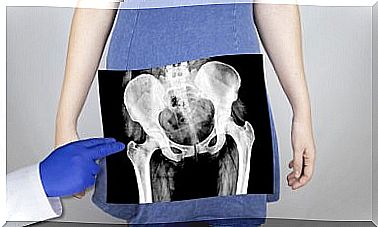Lupus And Pregnancy: What Should You Know?
The combination of lupus and pregnancy is possible, especially in these times that the therapeutic management of the disease has notably improved, reducing the adverse effects of the medications used in it.
Keep in mind that a large part of the problems when combining lupus and pregnancy comes from pharmacology. Medications to reduce lupus attacks often cause infertility or malformations in the fetus.
For this reason, women with lupus are always instructed to plan their pregnancy well in advance so that the doctor can tailor treatment to the situation. Today this is possible, thanks to the development of active principles that supplant the previous ones.
As we will see in this article, after proper planning, women with lupus disease are able to conceive with relative safety. They will have to undergo more controls than another pregnant woman without comorbidities, but it is viable.
What is lupus?
Lupus is an autoimmune disease. This means that the immune system itself attacks its own cells, ignoring them. It identifies some tissues as external or threatening, and inflames them with a reaction similar to that which takes place when fighting viral or bacterial diseases.
The pathology is chronic and evolves in the form of exacerbations. There may be periods of inactivity, where there are no symptoms, but then acute episodes that are severe and disabling ensue.
The tissues most affected by lupus are the articular, dermal and kidney. There is also involvement of the lungs and the brain, but its characteristic symptoms derive from the joints and the skin.
When we talk about lupus and pregnancy, we are referring to a woman who has a previous diagnosis of lupus, and becomes pregnant at some point in her life. Then, the alerts are lit because there are records that refer to an increase in the incidence of pregnancy problems in these women.
In addition, there is a specific disorder, which does not always happen, and which is called neonatal lupus. This happens when the baby receives the antibodies that the mother has and that are the cause of lupus in her. The child will have skin and blood problems, and in severe cases may suffer from heart problems.

Medications for lupus and infertility
To talk about lupus and pregnancy, one must first refer to lupus and fertility. The truth is that women with the disease should not have more difficulties than the rest to get pregnant, but here drugs play a key role.
People with lupus are given medications that can alter pregnancy ability. A frequent drug in management plans is cyclophosphamide, which alters the long-term viability of the ovaries.
Therefore, it is important that women who wish to become pregnant, and have a diagnosis of lupus, consult well in advance. Treatment plans can be modified to promote fertility. What some doctors do is add another drug called leuprolide to cyclophosphamide, which reduces infertility.
Similarly, several lupus treatment drugs are teratogenic, which means that they can cause birth defects in the fetus, especially during the first trimester. It is another matter to plan in advance with the treating doctor.
Complications from lupus in pregnancy
During pregnancy, a woman’s lupus can complicate pregnancy compared to a woman who has no diagnosis. Among the most frequent problems we have:
- Hypercoagulation: the pregnant woman can be prone to form clots, which interrupt the blood flow to the placenta.
- Abortion: Women with lupus are 10% more likely to undergo a miscarriage than other pregnant women.
- Preeclampsia: this syndrome consists of an increase in the woman’s blood pressure, with edema in the lower limbs and loss of protein in the urine. It is a type of arterial hypertension that, although it is usually induced by pregnancy, in these cases is attributed to lupus.
- Preterm labor : The above conditions, each on their own, can speed up labor and speed up the birth.
Lupus and pregnancy are compatible
Despite the complications, lupus and pregnancy are compatible. Women who have the diagnosis of the disease and want children, should consult with their treating doctors to plan the best possible stage. Good evolution will depend on this planning.









